713-936-5557
sales@mansfield.us
Mansfield Marketing Blog & News
4 Types Of Marketing Plans And Strategies
Marketing is the pulse of any business—a dynamic and strategic engagement that has evolved significantly over the years. As the business landscape shifts and redefines itself, so must the marketing approaches that propel it forward. This comprehensive guide delves into the four main types of marketing plans and strategies, their inner workings, and how they can be tailored to maximize impact for your business.
Introduction: The Heartbeat of Business Growth
In any company's marketing strategy, a successful marketing plan is crucial to reach your business goals. A well-thought-out marketing plan helps generate leads, retain customers and keep your brand top-of-mind. But before diving into the types of marketing plans, it's vital to understand what marketing is.
Marketing can be defined as the set of activities that facilitate the exchange of goods or services between a company and its target audience.
Marketing strategies are the structured approaches that detail how you will achieve your marketing goals. They are the strategies and tactics that dictate how you will communicate the benefits of your products or services to your customers.
In this blog post, we will examine four types of marketing planning and strategy, outlining their strengths, weaknesses, and how they can be applied in today's hyper-competitive business environment.
1. Traditional Marketing: A Pillar of Yesteryears
Definition
Traditional marketing refers to any type of promotion, advertising, or campaign that has been in use by companies for years, if not decades. This includes methods such as print advertisements, direct mail, billboards, radio, and television ads.
The Pros and Cons of Tradition
Pros
- Wide Audience Reach: Traditional marketing can reach a broad demographic and reach your target customers.
- Established Credibility: Many consumers still trust traditional advertising methods more than they do newer digital marketing methods.
- Tangible Impact: Print and physical advertisements offer a tangible presence that can't be replicated digitally.
Cons
- High Costs: Traditional methods of marketing can be significantly more expensive than digital marketing with the risk of it not being as effective.
- Limited Engagement: In comparison to the interactivity of digital marketing channels, traditional often has more one-sided communication with the audience.
- Difficult to Measure: It can be hard to measure success the exact impact or ROI on traditional marketing efforts.

2. Digital Marketing: Adapting to the Digital Age
Embracing Modernity
In contrast to traditional marketing, digital marketing utilizes the power of the internet and technology to reach audiences. It includes a variety of formats such as search engine marketing, pay-per-click (PPC) advertising, social media marketing, content marketing, email marketing, and mobile marketing.
What Is Digital Marketing?
Digital marketing techniques leverages digital channels, tools, and platforms to connect with customers where they spend much of their time: online. This includes email marketing, social media marketing, website traffic, and other internet-based channels.
Digital Marketing Advantages
Pros
- Lower Costs: Digital marketing typically requires less investment than traditional methods. Advertisement comes at a significantly lower cost anything from digital ads, social media ads, google ads, etc.
- Highly Measurable: Digital marketing tools offer detailed analytics to track the efficiency and ROI of marketing campaigns in order to measure success.
- Greater Engagement: Two-way communication digital channels mean you can engage with your audience in real-time.
Cons
- Information Overload: The digital space is crowded, making it difficult to stand out among competitors. But with the right digital marketing team, success is unlimited.
- Technology-Dependent: Digital marketing success often hinges on the availability and proficiency of technological tools.
- Rapid Evolution: The fast pace of digital marketing requires staying current with new trends and platforms. Which is a lot for a business owner to handle, it's recommended to get digital marketers to do that job and run an effective digital marketing strategy.
Key Digital Marketing Efforts
From search engine optimization (SEO) and digital ads to social media advertising and email marketing, digital marketing offers a suite of strategies to enhance your online presence and drive customer engagement.
Digital marketers are the navigators of the internet seas, guiding businesses through the complex currents of the online world. They possess a unique set of skills that blend creativity with technical know-how, enabling them to craft and execute marketing campaigns that resonate with digital audiences.

3. Content Marketing: Crafting Value and Connection
The Strategic Approach to Content Marketing
Content marketing is less about selling products directly and more about establishing your brand as a thought leader and trusted information source in your industry. A content marketing strategy should align with your business goals and speak authentically to your audience's interests and pain points. Key elements of this strategy often include identifying target customer personas, researching topics that resonate with these personas, planning a content calendar, creating high-quality and SEO-friendly content, and distributing it across appropriate channels for maximum reach and engagement.
In practical terms, a content marketing strategy may involve regularly publishing blog posts that answer common industry questions, creating infographics that simplify complex data, producing video tutorials or webinars, and engaging with audiences through social media platforms. Each piece of content should be crafted with a specific goal in mind, whether it's driving traffic to your website, increasing sign-ups for your newsletter, or boosting brand awareness and credibility.

Why Content ?
Pros
- Builds Credibility and Trust: Providing your audience with valuable content can establish you as a thought leader in your industry.
- Improves SEO: Content marketing efforts is one of the best ways to boost your site's search ranking and visibility.
- Fosters Loyalty: Consistently providing relevant content can keep your audience engaged and coming back for more.
Cons
- Time-Intensive: Developing high-quality content can be time-consuming.
- Requires Skill Diversity: Effective content marketing demands a wide range of skills, from writing and design to video production and analytics.
- Can Be Overlooked: In an oversaturated content market, it's easy for good content to get lost without a solid distribution strategy.
Content Creation and Distribution Strategies
To stand out, your content must be valuable and engaging. The entire marketing plan would be to put out high quality content, for in return increase brand awareness, gain potential customers, reach your target audience, and increase sales.
4. Social Media Marketing: The Personal Touch
Defining Social Media Marketing
Social media marketing is the use of social media platforms to connect with your audience to build your brand, increase sales, and drive website traffic. This involves publishing great content on your social media profiles, listening to and engaging with your followers, analyzing your results, and running social media advertisements.
The Social Media Powerhouse
Pros
- Direct Connection With Customers: Social media provides a direct line to your customers, fostering community and personalized interactions.
- Amplified Brand Reach and Recognition: An active social media presence can help your brand reach a wider audience and increase brand recognition.
- Cost-Effective Advertising: Social media can provide a high ROI for relatively low advertising costs.
Cons
- Content Consumption Patterns: Users on social media are not always in "buying mode," which can make conversion more challenging.
- Competition Can Be Fierce: With millions of businesses on social media, standing out requires creativity and consistency.
- Vulnerability to Public Feedback: Social media is a double-edged sword, opening businesses up to public scrutiny and feedback, both positive and negative.
Leveraging Social Media Channels for Marketing
Understanding the nuances of each social media posts and tailoring your content to maximize its impact is vital. Moreover, staying tuned to the latest social media trends can give your brand an edge. A social media campaign can lead to increase of customers, increase of brand awareness and ROI.
The Influence of Influencer Marketing
Influencer marketing is a strategy that involves partnering with influential people within your industry or related fields to reach a larger or more targeted audience. By leveraging the trust that influencers have built with their followers, businesses can create authentic connections and drive their messaging to more target audiences.
The Importance of Mobile Marketing
The ubiquity of mobile devices has opened up a new frontier in digital marketing. More than ever, consumers are using smartphones and tablets to interact with brands, consume content, and make purchases. This shift towards mobile has made it essential for businesses to optimize their digital marketing strategies for mobile users.
Mobile Marketing Pros
- Immediate Reach: Mobile devices are always within arm's reach, allowing for instant communication with potential customers.
- Location-Based Targeting: Mobile marketing can be tailored based on the user's location, part of a digital marketing tactic, providing highly relevant and contextual advertisements.
- Higher Engagement Rates: Mobile content tends to have higher engagement as users often check their devices impulsively.
Mobile Marketing Cons
- Screen Size Limitations: The small screen of mobile devices challenges marketers to create content that is both engaging and easy to interact with.
- Fragmentation Across Devices: A variety of screen sizes and operating systems make it difficult to design uniform campaigns.
- Intrusiveness: Unsolicited or poorly timed mobile marketing can be perceived as invasive and lead to negative brand perception.

Conclusion: Finding Your Marketing Rhythm
The marketing strategy that best suits your business will depend on several factors, including your industry, target audience, budget, and company goals. Choosing the right marketing plan is not a one-size-fits-all process; it requires careful consideration and likely a mix of traditional and digital methods to achieve the best results.
In an environment of constant change, the only constant in marketing is the necessity to adapt and integrate new strategies into existing plans. Staying informed, creative, and flexible can ensure that your marketing strategies remain as dynamic as the business world itself.
For business owners, marketers, and companies, mastering these four core types of marketing strategies is both a challenge and an opportunity. It is the pathway to not just staying relevant in the market, but to leading it with innovation and connectivity. Whether in traditional or digital form, these marketing strategies will continue to evolve, and those who understand and embrace them will flourish in the ever-changing business landscape.
Investing in a reputable marketing agency can open up significant opportunities for your business. A specialized agency brings an external perspective along with deep expertise in the latest marketing strategies and technologies.
Marketing leaders identify gaps in your current approach, propose innovative solutions, and ultimately craft compelling campaigns that resonate with your target audience.
With their proficiency in measurement and analytics, marketing agencies are also equipped to fine-tune strategies for maximum impact, ensuring that every dollar you spend contributes to your overarching business goals.











